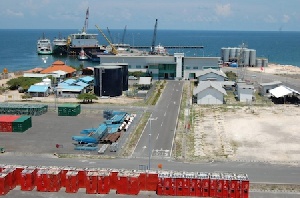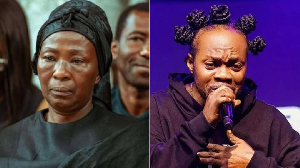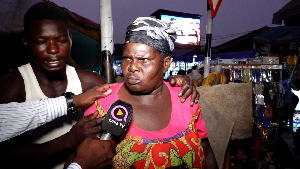The financial capability of Lonrho Ports to build a Freeport under a Special Project Vehicle called Atuabo Freeport Ghana Limited is being questioned as the Government of Ghana is expected to contribute $210 million towards the $600-million project.
Under the terms and conditions of the agreement approved by Parliament on July 24, 2014, the Social Security and National Insurance Trust (SSNIT), Ghana Ports and Harbours Authority (GPHA), Ghana National Petroleum Corporation (GNPC), Volta River Authority (VRA) and State Insurance Company (SIC) are to pay $210 million to acquire 35% equity in Atuabo Freeport Limited.
Snippets of information reaching The Finder indicate that government committed these institutions to the project without the approval of their management.
Some of the institutions named in the project to contribute the $210 million have expressed disquiet.
Instructively, the Government of Ghana (GoG) shall be given only a 10% stake of the initial share capital of the developer at a per value zero premium.
What is even baffling is that, according to the agreement, all initial capital contributions up to commercial operation date in respect of the initial GoG shareholding shall be carried by the other shareholders on a non-refundable basis, ensuring non-dilution of the government's interest.
The agreement said the remaining 55%, representing $330 million of the equity, will be held by international investors and will include Lonrho Ltd, Africa Finance Corporation and China Labour Engineering Company (CHEC).
Critics say the inclusion of other international investors raises questions about Lonrho’s financial capabilities to execute the project.
Another controversial clause in the agreement is that the government also agreed to procure the granting of all necessary Consents and licenses (co-operating with the Developer in such regard through the Project Advisory Committee) required for the Developer to be designated as, and enjoy the rights of, a Free Zone Developer and Free Zone Enterprise as set out in the Free Zone Act for the duration of the Term (including all existing Free Zone incentives and investors’ protections and work permits).
Meanwhile, the developer is to pay to the GoG, on a monthly basis (in arrears), a cash royalty based on: (a) 5% of the Port Dues paid by Freeport Users (b) 5% of revenue from the Developer’s published port tariff per tonne of goods, and (c) 5% of revenue from rentals of the undeveloped service area of each sub-lease granted to a tenant at the site.
Mr Kwabena Owusu-Aduomi, ranking member of Committee on Roads and Transport, in his contribution during the approval debate in Parliament, described the project as a “controversial obey as it spans from the capacity of Lonrho to build such a port in view of the status of Lonrho Freeport in equatorial Guinea being used a reference port.”
Parliament’s approval of the project, which gives exclusive rights to Lonrho to plan, build, operate the Freeport with tax exemption for 25 years, with further rights for another 25-year extension, is strange because the same Parliament has approved a loan of £194m to Takoradi Port to position itself in supporting the hydro-carbon industry and is currently restructuring and expanding its existing facilities to continue to support its traditional role.
The Finder’s investigations also revealed that an official of Lonrho Ports and Atuabo Freeport Ghana Limited is said to have invited leaders of some trade unions for a meeting. According to the information, the Lonrho official (name withheld), who wanted to meet the union leaders, sent his emissary to the trade union officials.
However, The Finder can report that the union leaders have rejected the invitation with the explanation that they cannot be influenced to change their position on the project.
Available information indicates that the said official is an associate of a powerful Minister of State.
The contract gives Lonrho Ports Ltd exclusive rights to provide “specialised services” for the oil and gas industry in the Western Region, and this breaches PNDC Law 160 of 1986.
Under section 5 (1) of the PNDC Law 160 of 1986, it is only the GPHA which is authorised to plan, build, develop, manage, maintain, operate and control ports.
The Maritime and Dock Workers Union (MDU) is preparing to file a fresh suit to stop the investors (Lonrho Ports Limited and Atuabo Freeport Ghana Limited) from going ahead with the US$600-million project.
MDU is of the view that under no circumstance should government allow a private individual, especially foreigners, to build and operate ports in the country.
The union said allowing private individuals, especially foreigners, to control an entry point amounts to handing over the nation’s sovereignty to foreigners.
It noted that the proposed Lonrho project, and for that matter any project that allows private individuals, especially foreigners, to build and operate ports will have dire national security implications for the nation.
MDU is opposed to the agreement because of the dangers involved in allowing the private hands to construct and giving the private entity the exclusivity to the whole of the Western Region.
The union explained that the right thing to do will be for Lonrho Ports Limited and Atuabo Freeport Ghana Limited to negotiate with the Ghana Ports and Harbours Authority (GPHA) for permission to build a terminal for oil and gas under the control of GPHA.
Under the agreement, Lonrho Ports, a 100% subsidiary of Lonrho Plc, is to develop a new, dedicated oil services terminal at Atuabo in the Western Region.
Five Members of Parliament have filed a suit to challenge the project, especially the exclusivity given to Atuabo Freeport.
The case, which was filed at the Sekondi High Court on August 14, 2014, has Atuabo Freeport Ghana Limited as an interested party.
The plaintiffs are Kwaku Kwarteng, the New Patriotic Party (NPP) MP for Obuasi West; Kwabena Okyere Darko-Mensah, NPP MP for Takoradi; Joseph Cudjoe, NPP MP for Efia; Mavis Hawa Koomson, NPP MP for Awutu Senya East; and Kofi Brako, NPP MP for Tema Central.
Government has already given sovereign guarantees for loans for the expansion of the Takoradi Port, and critics of the Lonrho deal say the Freeport contract will render the port unprofitable.
On Thursday, July 17, 2014, Parliament gave its approval to the Ghana Oil and Gas Freeport Project Commercial Agreement amidst heated debate.
The government is investing €197 million into expanding the Takoradi Port to position it to handle oil and gas transactions.
The expansion work involves dredging the duct by 11.6 metres and extension of the breakwaters by 1.75 metres northwards, construction of bulk jetty, creation of berths, as well as the construction of two major dual carriage roads to link the port.
The first dual carriage will start from the port to the harbour roundabout while the second will start from Gate 10 through New Takoradi to Danquah roundabout, to ease traffic in and around the port.
There will be other road network linking the port to Nkotompo and Sekondi.
Other facilities to be constructed include Inland Container Depot at Nkotompo, silos to store marine diesel, base oil, as well as oil service terminals, reclamation of land area of 350 hectares, and dredging of an access channel.
The dredging will ensure single handling of cargoes to reduce the cost of doing business whilst there would be sufficient space for other equipment needed for the oil and gas sector.
Jan-De-Nul from Belgium is responsible for the extension of the breakwater, the bulk jetty, dredging, as well as backfilling, estimated at ?197 million, whilst China Harbour Construction would construct the dual carriage roads, as well as stuffing of the log pond at an estimated cost of US$150 million.
Upon completion, manganese, bauxite and other bulk cargo operations will be transferred to a new dedicated jetty.
The expansion will also free the existing manganese terminal for the increasing demand of other stakeholders in the shipping sectors.
General News of Tuesday, 23 September 2014
Source: The Finder













